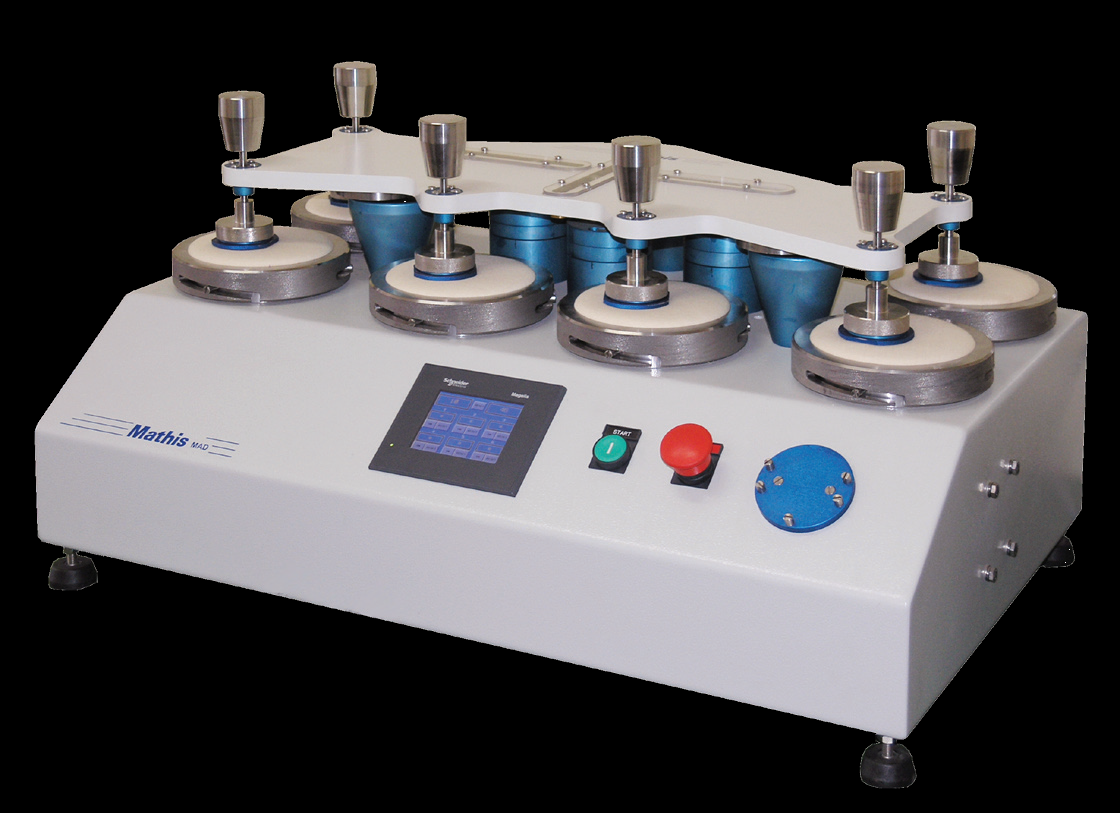ASTM D4966 Standard Test Method for Abrasion Resistance of Textile Fabrics Martindale Method
The ASTM D4966 standard test method is a recognized procedure used to determine the abrasion resistance of textile fabrics using the Martindale method. This method simulates real-world conditions by subjecting textiles to repetitive friction until visible wear occurs, thus providing valuable insights into the durability and longevity of materials. The Martindale method is particularly useful in industries where fabric quality and reliability are critical, such as automotive interiors, outdoor gear, and apparel.
The procedure involves the use of a rotating drum containing abrasive particles that abrade against the specimen fabric. The number of cycles required for visible wear to occur indicates the abrasion resistance of the material. Factors like the type of abrasive used (sandpaper or grit), the weight of the drum, and the speed at which it rotates can significantly influence the results.
Quality managers and compliance officers rely on this method to ensure that products meet industry standards and consumer expectations. For R&D engineers, this test is essential for developing new materials with improved abrasion resistance. In procurement, understanding ASTM D4966 helps in selecting suppliers who adhere to these stringent testing protocols.
The Martindale method is widely accepted in the textile industry due to its ability to replicate real-world conditions accurately. It allows manufacturers and researchers to predict how a fabric will perform under various use cases, ensuring that the final product meets both functional and aesthetic requirements.
For the most accurate results, it's crucial to follow the ASTM D4966 standard closely. This includes proper specimen preparation, calibration of equipment, and consistent testing conditions. Deviations in any of these factors can lead to unreliable data.
Why It Matters
The abrasion resistance of textile fabrics is a critical factor that influences the performance and longevity of various products across different sectors. In automotive interiors, for instance, fabrics need to withstand constant friction from occupants and external environmental factors like sunlight and temperature changes. Similarly, outdoor gear must endure harsh weather conditions and rough terrains without compromising on comfort or durability.
For apparel manufacturers, ensuring that their products meet the abrasion resistance standards is essential not only for maintaining brand reputation but also for legal compliance. Non-compliance can lead to product recalls, damage to brand image, and potential lawsuits. The Martindale method provides a standardized approach to testing, allowing brands to confidently market their products as durable and reliable.
In addition to consumer satisfaction, meeting these standards is vital for ensuring the safety of end-users. Products that fail to meet abrasion resistance requirements may pose risks such as premature wear or even failure during use, leading to potential accidents.
Quality and Reliability Assurance
- Specimen Preparation: Proper preparation is crucial for accurate results. Specimens should be cut according to ASTM D4966 specifications, ensuring uniformity across all samples.
- Instrumentation Calibration: Regular calibration of the Martindale machine ensures that each test run provides consistent and reliable data.
The process begins with selecting appropriate specimens based on intended use. Specimens are then cut according to ASTM D4966 guidelines, ensuring uniformity across all samples. The choice of abrasive material is also critical; typically, sandpaper or grit is used depending on the fabric type and expected wear conditions.
Instrumentation calibration ensures that every test run provides consistent results. This includes checking the weight of the rotating drum and the speed at which it rotates to maintain accurate testing parameters. Proper calibration prevents discrepancies in data collection, ensuring reproducibility across multiple tests.
International Acceptance and Recognition
- Widely Accepted: ASTM D4966 is internationally recognized for its reliability in assessing abrasion resistance. It's used by laboratories, manufacturers, and regulatory bodies across the globe.
- Affordability: Compliance with this standard ensures that products meet global market requirements without excessive costs or delays.
The Martindale method is not only widely accepted but also highly regarded in the textile industry. Its international recognition means that compliance with ASTM D4966 can open up new markets and opportunities for businesses operating internationally. This standard ensures that products meet global market requirements without excessive costs or delays.





